
Snowbirds Drive South
Back To Fun and Sun and Important Responsibilities
Published October 2022
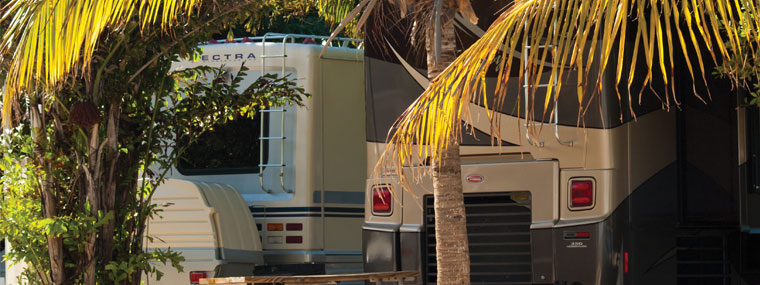
Editor’s Note: Some important changes have taken place during the summer of 2022. Though the advice from the multiple service providers is kept brief, there are many important lessons to learn and actions to take.
 A Brief Overview of Florida Senate Bill 4-D
A Brief Overview of Florida Senate Bill 4-D
By Doug Weinstein
The passing of Florida Senate Bill 4-D in May 2022 made it mandatory for all Florida condominium and cooperative buildings three stories or higher to undergo milestone inspections, obtain structural inspections, and submit specific information to the Department of Business and Professional Regulation (DBPR).
As your condominium or cooperative adapts to the new bill requirements, here are some key requirements to keep in mind:
- Milestone inspections involve two phases and must occur when a building reaches 30 years of age (or 25 if within three miles of the coastline), and every 10 years thereafter.
- First milestone inspection deadline is December 31, 2024, for properties that received their certificate of occupancy (CO) before July 1, 1992.
- Structural integrity reserve studies must be completed by a Florida-authorized engineer or architect.
- DBPR reporting must be submitted in writing by January 1, 2023.
- The bill may be revised, meaning requirements and regulations are subject to change.
For detailed information regarding Florida Senate Bill 4-D, visit https://www.akam.com/resources/fl-senate-bill-4d/.
Doug Weinstein is Vice President of Operations with AKAM, a leading residential property management company serving Florida and the New York area for nearly four decades. He may be reached at dweinstein@akam.com.
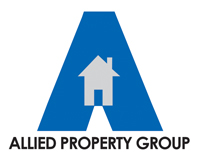 Condominium Inspections—Take Action Now
Condominium Inspections—Take Action Now
By Ana Rivero
More than a year after Surfside, Florida passed a new condominium safety law to prevent such a tragedy from recurring. It requires an inspection at 25 to 30 years, depending on location, with a follow-up every 10 years.
Perhaps more importantly, associations must complete a structural integrity reserve study and prove they can meet funding requirements before 2025.
To figure out how much is needed, condominium boards are expected to hire consultants; however, many companies don’t offer them yet.
Condominium boards and residents should begin to take action now by pursuing the following:
- Find an engineering firm to provide a priority list of necessary repairs.
- Look at funding options, including loans.
- Talk to homeowners who may have to sell due to fee increases.
The goal is for these new inspections to detect problems long before a catastrophe. The sooner your association conducts a structural integrity reserve study, the sooner it can put the funds in place to meet repair costs.
For more information on Allied Property Group, call (305) 232-1579 or visit www.alliedpropertygroup.net.
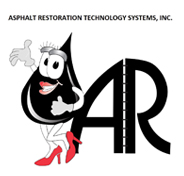 Pay Attention to the Roads
Pay Attention to the Roads
By Connie Lorenz
As you travel home this winter, pay close attention to the roads you are traveling on as their cost of investment and replacement has gone up dramatically. We started off the year with a trucking shortage and high fuel prices. However, the industry started the spring off with an aggregate shortage, and one of the larger asphalt plant chains in Florida cut off its supply of asphalt to only their paving teams and clients. What does that mean for you? If you have received a proposal for a milling and/or paving project within the last 45 days, your pricing might not be valid. In fact, I have seen contractors put down that their pricing was only valid for 10 days! Contractors that provided a bid before might not be around any longer or might only use subcontractors now. Products you were quoted before might no longer be available for purchase. Remember that crisis management is far more expensive than preventive maintenance. Don’t know the difference? We can help!
For more information on Asphalt Restoration Technology Systems, call (800) 254-4PDC (4732) or visit www.asphaltnews.com.
 Set Your Community Up for Success This Budgeting Season and Sign Up for Fiber Internet Service!
Set Your Community Up for Success This Budgeting Season and Sign Up for Fiber Internet Service!
By Jacky Ham
Welcome back, snowbirds! You made it back just in time for budgeting season! Are you interested in exploring a new fiber telecommunications partner for your community but wonder how it will impact your budget and whether it is doable before budgeting season ends?
Spoiler Alert: The answer is “yes,” and it will most likely have a positive impact. Most organizations need to have budgets finalized and approved by November, which means you need to set meetings and meet with any potential vendors and providers NOW.
As you think about budgets and consider exploring fiber telecommunications providers for your community, keep in mind that signing a bulk agreement comes with massive financial benefits for communities and their overall budget.
When working with a bulk broadband partner, the provider usually recompenses the association a one-time payment (payment based on agreed amount per unit, called a door fee), which benefits the property and residents. This lump sum can be used for capital improvements and needed projects within the community, such as landscaping and construction needs, among other things. Additionally, these services are offered at a highly discounted rate, which means the amount that residents pay in their HOA fees are a lot smaller than they would be if the resident purchased the same services at a per-unit retail cost.
To learn more about our bulk programs for communities like yours or to schedule a meeting with Blue Stream Fiber prior to budgeting season coming to an end, please visit Bluestreamfiber.com/bulk.
 Making a List and Checking It Carefully
Making a List and Checking It Carefully
By John Rowland
If you are returning to your vacant Florida home, chances are you had a home watch person checking on your HVAC system, water heater, plumbing, etc. If not, it may be a good idea to schedule maintenance calls prior to your return as this time of year is very busy for those specialists.
Once you arrive, here are a few basic checks you can perform on your own: check the AC filters; check thermostat batteries; test appliances; turn on the water and test your faucets, toilets, and shower… and don’t forget to check your smoke alarm!
If you live in a gated community, it is also important to notify security as well as your property management company that you are back in town.
Be mindful that hurricane season is in effect until November 30, so have a plan for you and your family in the event of an evacuation. Cheers and enjoy!
For more information about Cambridge Property Management of Southwest Florida, visit cambridgeswfl.com or call (239) 249-7000.
 Safety, Comfort, Protection, and Cost Savings: Why You Need a Preventive Maintenance Plan
Safety, Comfort, Protection, and Cost Savings: Why You Need a Preventive Maintenance Plan
By Ashley Dietz Gray
When common elements are not properly maintained, you may end up with the following:
- Elevators not working, creating safety risks
- Air conditioning broken during a hot day
- Leaks that result in damage to personal property
- Unexpected equipment failures that require replacement before their expected end of life
A proper preventive maintenance schedule is essential to help you stay organized and efficient when taking care of your community. Start by identifying all the common elements that need to be maintained. Some of these elements can be maintained by in-house staff, and others need to be maintained by outside professionals. It is also important to understand the frequency and scope of the preventive maintenance.
These are common elements in a condominium that need to be maintained by outside professionals:
- Roofs
- Elevators
- Cooling towers or other common area AC equipment
- Generators
- Alarm systems
Common elements in a condominium that can be maintained by in-house staff include the following:
- Changing air filters for individual AC units
- Back-flushing individual AC units
- Touch-up painting in common areas
- Cleaning grills
- Cleaning hallway carpets
Common elements in an HOA that need to be maintained by an outside professional include these items:
- Trees and other plantings
- Clubhouse AC and electrical systems
- Lakes
- Pools
Following are common elements in an HOA that can be maintained by in-house staff:
- Pressure cleaning of pool area
- Changing clubhouse AC filters
- Machine cleaning of clubhouse carpets
- Touch-up painting in the clubhouse
- Minor fence repairs
For more information on Campbell Property Management, call (954) 427-8770 or visit www.CampbellMGT.com.
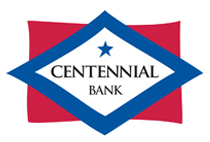 Review Your Association’s Bank Accounts
Review Your Association’s Bank Accounts
By Sheila McKenna, CAM
Now is a great time to perform a review of your association’s bank accounts. Following are a few items to consider:
- Have there been changes to the board or management company that would require changing the account signers? What documents are required to make those changes? It’s a good idea to have a copy of the minutes showing the board changes or an updated copy of Sunbiz.org (showing board of directors’ names) when making those revisions).
- Has your board been using the same passwords for ages? It’s probably time to change them. Some best practices include a unique password for each password-protected portal you use, using an online password generator, and using passphrases instead of passwords (example: puppy banana airplane).
- Check that the cumulative amount of your accounts does not exceed $250,000.00 to ensure your accounts are covered by FDIC insurance. If your association is over that FDIC limit, ask your bank about options to provide additional FDIC insurance.
When in doubt, reach out to your association banker. We are here to help.
For more information about Centennial Bank, call 1-866-227-0441 or visit www.my100bank.com.
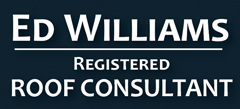 Get Your Reroof Project under Contract
Get Your Reroof Project under Contract
By Ed Williams, RRC
Supply chain issues continue to plague the roofing industry nationwide. If you’re planning any reroofing projects within a year, you should get it under contract as soon as possible. Some critical insulation products are taking up to 12 months to deliver. Pricing has also been volatile, so don’t be surprised if you find clauses in your contract allowing for price increases between the time the product is ordered and the time it is delivered. It is also a good time to review budget reserves, especially roofing. If you have read my articles before, you know that I am a big proponent of annual roof inspections. If your roof has been in the path of a hurricane, this is extremely important. A small area of damage can be like cancer in a human. Left untreated, it can spread rapidly. Our experienced team can guide you through all of this, including reserve studies.
For more information about Ed Williams Registered Roof Consultant, call (772) 335-5832 or visit EdWilliamsRegisteredRoofConsultant.com.
 Quick Tips to Evaluate Home and Community Safety
Quick Tips to Evaluate Home and Community Safety
By Brie Shouppe
The last quarter of the year is a great time to check on your home and community security. Whether you’re returning to the Sunshine State after time away, or you’re a property manager preparing for the last few months of the year, start with these quick tips to evaluate a property.
- Does it seem a little dark around your home, amenity, or entrance? Light it up! Replace burnt out bulbs or add new lighting in areas that aren’t well lit to deter trespassers and burglars who do not want to easily be seen.
- Is the landscaping around your home or community overgrown? This can create hiding places when some plants aren’t maintained.
- Check all the doors and windows to ensure locks and access control points are operable. For residents this can include checking with your community staff to obtain new access credentials if systems have been updated while away.
For more information about Envera Systems, visit enverasystems.com or call 1-855-380-1274.
 Why Is Solar Lighting the SMART Choice for New or Updated Lighting Designs?
Why Is Solar Lighting the SMART Choice for New or Updated Lighting Designs?
By Patrick Stevens, VP Sales & Marketing
As communities focus on landscape lighting to bring additional beautification, usability, and security to their properties, many specifiers increasingly look to aggressively pursue designs based upon sustainability principles. More and more, solar-powered light fixtures operating on 100 percent renewable energy are recognized as the environmentally responsible choice in landscape lighting design. Coupled with no invasive trenching or cabling, fast and easy installations, and no future electricity costs, solar light poles provide a quick return on investment and years of continued cost savings.
Hapco, an industry-recognized manufacturer of the highest-quality aluminum and steel lighting poles for over 70 years, has recently introduced the industry’s most technologically advanced solar lighting pole for use in these applications. With far superior aesthetics, advanced solar technology, the highest-quality NMC lithium batteries, 4G connectivity, and an exclusive solar control system that guarantees an industry-leading 30-plus days of autonomy, the Hapco Solar Pole is the SMART choice in solar lighting.
For more information about Hapco Solar Poles, visit www.hapco.com/solar-poles/.
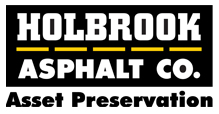 Your Portfolio Value is Up! Guaranteed
Your Portfolio Value is Up! Guaranteed
By Mark Beatty, Sr. Vice President
Maybe your 401k has slumped a bit lately, but the value of your community’s street portfolio is higher than ever before! You can’t cash in these asset value gains; in fact, you need to protect them even more vigilantly as replacement costs continue to accelerate. For these valuable assets, the focus on effectively maintaining and maximizing the life of community streets and parking lots should be one, if not the highest, priority for an HOA board. If you’re thinking seal coats are the answer, you’re stuck in the past. Today the fastest growing trend for effectively extending pavement life and delaying asphalt aging by 67 percent is the use of HA5 High Density Mineral Bond.
Visit holbrookasphalt.com for more information.
 Loss Assessment Coverage: A Hidden Coverage in HO-6 Condominium Unit Owner Policies?
Loss Assessment Coverage: A Hidden Coverage in HO-6 Condominium Unit Owner Policies?
By Richard Hunter
Welcome back, snowbirds! As you settle into another sunny winter in Florida, we want to highlight a relatively unknown coverage in the HO-6 condominium unit owner policies. HO-6 policies are individual policies for unit owners and contain a coverage for loss assessments.
This coverage pays for a unit owner’s share of expenses for a covered loss to common property shared by all unit owners, up to the coverage limit. Policies must include at least $2,000 of loss assessment coverage with a deductible no greater than $250.
However, this loss assessment coverage may be increased for minimal additional premium and protects you as the unit owner against assessments that a condominium association must assess in the event of some type of loss such as a fire, hurricane, or sinkhole if there is a large deductible or the coverage limits of the master association policy are not sufficient to cover the amount of the loss.
Because the additional loss assessment coverage is so cheap, insurance professionals at the International Risk Management Institute Inc. routinely recommend purchasing $25,000–$50,000 in loss assessment coverage. See https://www.irmi.com/articles/expert-commentary/10-steps-to-a-well-designed-ho-6-policy.
To schedule a free policy review and property inspection, call (813)-774-7634 or visit www.hunterclaims.com.
 Protection from Common Electrical Issues
Protection from Common Electrical Issues
By Danny Kaddoch
Welcome back, snowbirds! We’re glad to see you here.
A lot of restoration work has been carried out over the summer while you’ve been away. As a result, we want to make sure you’re protected from what we’ve found to be common electrical issues in newly renovated buildings.
1. Surge protection
One common issue we’ve found is LED lights being burned out from voltage utility spikes. This is frustrating as it means you have to reinstall several lights at once. Installing a TVSS, or transient voltage surge suppressor, is an affordable and simple way of protecting your lighting from power spikes.
2. Elevator protection
A variable frequency drive (VFD) is a controller that drives an electric motor and is commonly found in elevator systems. VFDs are very efficient, but as they are basically mini-computers, they are vulnerable to power issues and can burn out easily. When they do, they are expensive to replace, with the average elevator VFD costing $10,000! An easy way to save money and reduce downtime is to install a protective device. While there can be an upfront cost, this additional safeguarding helps in the long term. It costs about $5,000 to install a protective device on an elevator VFD, which provides a significant return on investment.
3. Exterior site lighting
It’s important to check your lighting to make sure it’s working as it should. Take the time to test the lighting in common areas, egress routes, and parking lots. Does your lighting eliminate dark places and help provide a safe, secure environment? Given how affordable LEDs are, the cost of making these repairs versus not having the correct lighting or working lights is a no-brainer!
4. Pre-inspections
As we all know, there are now serious insurance inspections on existing conditions of your buildings and exterior lighting. It is important to get ahead of this and schedule your own inspections so you will not be caught off guard.
For more information on Hypower Electrical Services Group, call (888) 978-9300 or visit www.hypowerinc.com.
 Structural Integrity Reserve Study
Structural Integrity Reserve Study
By Sundeep Jay, RS
A lot has happened since May of 2022 regarding new laws that have been enacted by the State of Florida. The state has created a brand-new word/phrase called “structural integrity reserve study.” The nationally recognized term “reserve study,” which is typically known as a budgeting tool for an association’s long-term assets, is applied differently to a structural integrity reserve study. A structural integrity reserve study is now a budgeting tool plus an inspection report. In this report, the association must include a list of structural, electrical, plumbing, mechanical, and safety-related items. The visual inspection must be completed by an engineer and/or a licensed architect while the preparing of the report can be completed by anyone who is experienced/certified in preparing a reserve study. Associations are now required to annually fully fund all the items listed in the structural integrity reserve study. There are still some ambiguities and unclarities in the new state law, which we are hoping our state legislature addresses in the early 2023 session.
For more information about J.R. Frazer, call (561) 488-3012, email JRFrazerENT@aol.com, or visit www.JRfrazer.com.
 Scheduling a Condominium Restoration Inspection and Project
Scheduling a Condominium Restoration Inspection and Project
By Jim Emory, PE, SI
The Florida coastal condominium restoration industry is currently handling unprecedented demand for services with finite resources to meet that demand.
How should an association proceed in this new environment? First, try to use local, experienced professionals that have a successful track record in the restoration industry. Next, you should ask for a quick-turnaround safety inspection, which most engineers will accelerate, ahead of the full building evaluation. For less severe structural repairs and maintenance, schedule the building evaluation and competitive bid process, and get your building in the queue for needed repairs.
Do not rush the process as it may lead to improper advice, poor choices, and wasted valuable maintenance dollars. Experienced restoration engineers can recognize early signs of structural damage, which are typically not highly visible or fully understood. Knowledgeable engineers can also make appropriate recommendations to take steps to better protect the building and minimize future structural damage and cost.
For more information and to schedule a consultation, contact Keystone Engineering & Consulting at keystoneengineeringpe.com.
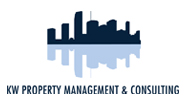 Critical and Expensive Restoration Projects Loom as Snowbirds Return
Critical and Expensive Restoration Projects Loom as Snowbirds Return
By Alex Martin, Vice President
As snowbirds return to the Sunshine State, important decisions are being made regarding necessary restoration and maintenance at Florida’s coastal communities.
Older condominium buildings are especially impacted by the new state law imposing reserve requirements and mandating 25-year inspections. In some instances, special assessments will be unavoidable.
Associations throughout Florida should keep the following in mind when weighing these decisions:
- Once work commences, contractors will likely identify other issues that need to be addressed, which will increase total restoration costs.
- A $5 million project five years ago could be twice as expensive today.
- Also set aside funds for sea level rise mitigation, such as regular soil testing; relocation of electrical lines, electrical rooms, and generators to higher floors; painting and sealing of ground-level doors; waterproofing of underground parking garages, and much more.
Associations and community managers must finalize priority lists now and ensure the costs of these expensive projects can be covered.
For more information on KW PROPERTY MANAGEMENT & CONSULTING, contact Alex Martin at (305) 476-9188 or amartin@kwpmc.com, or visit www.kwpmc.com.
 Five Predictions about the Future of Community Associations
Five Predictions about the Future of Community Associations
By Carlos Guzman Laserna, CEO
ONR is a community management software improving the quality of life in associations.
- Hotel-like condominiums: Whether it’s a global lock-down or because we’ve become homebodies, residents demand a hospitality-like experience from their condominiums and HOAs.
- Democratization of luxury: fancy high-rises will continue to lead the metropolitan transformation to meet higher demands from residents flocking to cities.
- Climate change: Managers and board members must train to mitigate natural risks and develop contingency plans.
- Organization: Maintaining a tight Online Neighbors Repository (ONR) where owner, resident, staff, and visitor info and workflows are securely kept.
- Home office: post-pandemic residents want better business centers, conference rooms, and common areas equipped for work as part of their amenities.
For insights on how communities are transforming and what ONR can do for you, visit sales@onrapp.com.
 Time to Consider a Recoat Application
Time to Consider a Recoat Application
By Alexandra Freeman
Welcome back, snowbirds! Did you know that silicone-based architectural wall coatings may, over time, become unsightly due to atmospheric deposits of dust and dirt? Even cleaning can be costly and is only a temporary measure at remediation. Unfortunately, recoating is typically limited to silicone-based materials as most organic coatings will not adhere to the existing silicone-based coating. Recoating with high-quality acrylic architectural coatings is also not an option. Don’t fret; we have a solution, Pecora SilcoPrime. SilcoPrime is an STPU-based (silyl-terminated polyurethane) interlaminary primer specifically formulated to promote the adhesion of exterior-grade, non-silicone-based architectural wall coatings when applied over existing silicone-based wall coatings. The coating will act as a permanent bridge between the existing silicone base coating and the new acrylic architectural coating. This provides the advantage of flexibility to choose from a wide array of colors and coating manufacturers when considering a recoat application!
For more information about SilcoPrime, please call (800) 523-6688, email techservices@pecora.com, or visit www.pecora.com/coatings/.
 The Transforming Association Landscape
The Transforming Association Landscape
By Jane Bolin
The condominium and homeowners association landscape is transforming. In the aftermath of the Surfside tragedy, we have new legislation intended to protect residents by increasing requirements of volunteer boards to fund reserves and address structural integrity. Indeed, SB 4-D there is much room for clarification and improvement of SB 4-D, and many get caught debating the issues. I encourage all board members and managers to take on a new context: the association is a business. Every good business has a reserve and takes into account more than immediate overhead when planning. A savvy business owner creates a strategy and then finds the ways to execute. What if annual planning looked more like this rather than just approving a one-year budget? The best way to predict the future is to create it. It’s time for associations to proactively create a new future and no longer just react to fires, and this begins with you.
For more information, call (954) 316-1339 or visit www.peytonbolin.com.
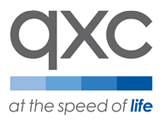 Guarantee Optimal System Performance and Happy Residents
Guarantee Optimal System Performance and Happy Residents
By John Von Stein
Reliable, secure, high-speed internet is essential for today’s increasingly digital lifestyle. We all need it, from web surfing to connecting smart home devices. QXC’s AON fiber-optic network architecture is the industry’s best practice for premium internet performance.
What does that mean for Florida communities? QXC AON fiber architecture gives residents more of what they need from their network, such as the following:
- Symmetrical bandwidth means the same upload and download speeds—essential for working from home, videoconferencing, etc.
- Unmatched internet speed for exceptional streaming performance—no buffering—plus ultra-fast web surfing, gaming, and no bandwidth sharing with your neighbors.
- Military-grade data security—each condominium/home gets its own fiber (no splitters), so there’s no snooping and no privacy or security breaches.
- A continuous digital signal is ideal for monitoring your Florida home from up north and ensuring a solid connection for grandkids or guests visiting during the holiday season.
As daily digital demands increase, make an informed network technology choice for your community to guarantee optimal system performance—and happy residents.
John Von Stein is CEO of Boca Raton-based QXC Communications. For more information, contact him at 561.708.1500 or sales@qxc.us or visit QXC online at www.qxc.us.
 Should Your Community Invest in Electric Car Charging Stations?
Should Your Community Invest in Electric Car Charging Stations?
By Camille Moore
More and more people are switching to electric cars, so the demand for charging stations is growing. If you’re wondering if your community association should invest in electric car charging stations, keep reading to learn some things you should consider.
The Pros
- Electric car charging stations can provide a valuable amenity for residents.
- Investing in electric car charging stations shows your community is committed to being eco-friendly.
- Residents will be incentivized to purchase electric vehicles.
- Car charging stations can be an attractive amenity for potential homebuyers.
The Cons
- The cost of installing electric car charging stations can be expensive.
- Electric car charging stations require maintenance.
- There is no guarantee the charging stations will be used.
The Choice Is Yours
By weighing the pros and cons of installing electric car chargers, association boards can make an informed decision about whether this type of infrastructure is right for their community.
For more information, contact camille.moore@realmanage.com or visit www.realmanage.com.
 Use a Leak Log to Better Preserve Property Value
Use a Leak Log to Better Preserve Property Value
By John Griffith, Vice President of Business Development
Florida boards and community managers are keen to understand the condition of critical infrastructures in their communities. Recent legislation in Senate Bill 4-D names plumbing systems among them. To help ensure that the piping in your community is maintained, repaired, and replaced in a timely manner, start using an incident tracking tool like a leak log. Strategically, it’s a way to protect the community’s quality of life and the value of homeowner investments. Maintenance staff use the leak log to record every leak and plumbing issue along with related costs. Then, during budgeting and capital planning meetings, boards and community managers should review the log data to inform the annual maintenance budget and periodic reserves planning. The review will also help you detect and proactively address systemic issues.
Share Four Key Things You Need to Know to Manage Pipes in Your Community (sagewater.com/change-the-way-you-look-at-a-plumbing-leak-in-4-easy-steps/) with your community manager and download your own leak log.
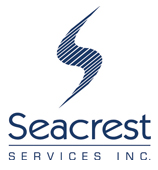 Stay Away from the Snow and Stay in the Know
Stay Away from the Snow and Stay in the Know
By Steve Kittredge, Senior Vice President of Operations
Welcome back, snowbirds! This year your return finds many more residents of other great states making Florida their permanent home. As you will see, that influx has brought about significant changes, most notably to the real estate market. In addition, estoppel cost caps were recently raised. Last year, we discussed Florida being open for business and that seems to have resonated. You are likely to find more restaurant and entertainment opportunities available this season.
On the condominium association front there has been significant new safety legislation passed to address concerns after the Surfside Condominium building collapse. Those of you returning to a community affected by this new legislation will find your boards, management companies, and managers working diligently on items such as recertification and reserves.
We are happy to have you back and look forward to a wonderful season!
For more information about Seacrest Services Inc., call (561) 697-4990 or visit www.SeacrestServices.com.
 Back to the Sunshine State for Florida Snowbirds
Back to the Sunshine State for Florida Snowbirds
By Valerie Hoover, Vice President
It’s fall 2022, and that means after many months seasonal residents are ready to unlock the doors to their winter homes. There are a few trends that will affect not only residents but associations and management companies as well.
Financing, wages, utilities, and operating costs will continue to rise in 2022 and into 2023, thus cutting into budgets. Smart financing will play a bigger role, and that is where comprehensive community management services and knowledgeable managers will keep boards informed and help monitor inflation concerns.
The risk of ever-increasing natural disasters dominates the headlines, such as fires, floods, and storms. Management companies must revamp emergency response protocols (ERPs) and disaster relief plans for their communities to stay up to date and up to code. Updating disaster plans means taking time to identify potential threats and having a proactive plan. These can often help minimize damage to life and property. Keeping on top of repairs also makes the entire community safer. HOA and condominium boards, with the guidance of their management company, should clarify priorities and make detailed lists of tasks. Boards and CAMs can put an emergency communication plan in place for their association that uses tools such as text alerts, calls, and emails.
The simplest way to ensure the board is well informed and prepared for these factors is to partner with a community management company that is up to date on state rules and regulations, facilitates financial guidance, offers thorough plans, and can support the board in organizing tasks and priorities, hiring quality vendors, and more.
Valerie Hoover is vice president of Ft. Myers region. For more information on Sentry Management, visit sentrymgt.com.



